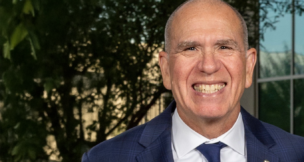Crypto in your 401(k)? Lawmakers are looking to make it happen
Emma Kinery, State Affairs//September 10, 2025//
Crypto in your 401(k)? Lawmakers are looking to make it happen
Emma Kinery, State Affairs//September 10, 2025//
Key Points:
-
Cryptocurrency advocates urge Congress to set national regulatory standards
-
DeFi Education Fund says state laws hinder innovation and create legal uncertainty
-
Senate is currently mulling a crypto market structure legislation
President Donald Trump’s executive order last month making it easier for employees to invest their retirement plans in “alternative assets” came as state lawmakers across the country have advocated for cryptocurrency to be an option for state-run retirement and pension plans.
There aren’t federal laws on the books that bar these types of alternative investments for retirement plans — such as cryptocurrency, private equity and real estate. But fiduciaries have been hesitant to include them for various reasons: high risk, questions over transparency, regulatory uncertainty and, for some assets like private equity, higher associated fees.
Trump’s order is the latest example of the change in tide. The Department of Labor in May rescinded a guidance issued under the Biden administration in 2022 warning plan managers to exercise “extreme care” when considering including cryptocurrency in investment plans.
Lawmakers in at least 20 states introduced legislation that would allow state treasurers, pension boards or other fiduciaries to invest public dollars in digital assets this year. The proposals typically cap the percentage that can be invested at 5% to 10% due to the volatility of digital assets.
State pension funds can purchase digital assets such as bitcoin directly — often with set guidelines for market capitalization thresholds, preventing meme coins from being included — or through indirect means such as exchange-traded products or equity in crypto companies.
Some states already have investments in cryptocurrency on their balance sheet. The State of Michigan Retirement Systems in August reported $11.4 million in ARK 21Shares Bitcoin ETF. Though it tripled its holdings in the most recent filing, the number still represents only about 0.03% of the state’s $79 billion in assets under management.
The State of Wisconsin Investment Board, which manages the Wisconsin Retirement System, invested in spot bitcoin exchange-traded funds (BlackRock’s iShares Bitcoin Trust and Grayscale’s Bitcoin Trust) last year, but by the first quarter of 2025 reported having sold its holdings.
North Carolina Rep. Stephen Ross, R-Alamance, said he hopes his state is next. Ross was an early supporter of long-term investing in cryptocurrency. In 2015 he introduced a bill, later signed by the governor, that updated the state’s Money Transmitters Act to include virtual currency — one of the first digital asset-focused pieces of legislation in the country.
Ross this year introduced House Bill 92, the North Carolina Digital Assets Investments Act. The bill would allow the state treasurer to allocate up to 5% of the state’s $127 billion retirement fund into digital assets. Digital assets would have to be in the form of exchange-traded funds with a minimum average market cap of $750 billion over the last 12 months, weeding out riskier cryptocurrencies such as meme coins.
Ross said the state employees association was skeptical of the proposal. He explained that any investment has some level of risk, and that the bill wouldn’t lead to the entire pension plan being invested in crypto — it’s simply an acknowledgement that crypto “has a place now in a balanced portfolio.”
Resistance to digital asset legislation is not new to him. Ross, who has worked in finance for four decades, said the initial hesitations to cryptocurrency is similar to concerns about exchange-traded funds when they first debuted.
“Crypto is no different,” Ross said. “It’s becoming more mainstream. More people are investing in it, and I think it has its place in pretty much just about every portfolio for balance. It’s not the end all and save all for everything, but it definitely has its place.”
The North Carolina House passed HB 92 in May, sending it to the state Senate. Ross told State Affairs he feels confident that when the legislature reconvenes for their short session next May it will make its way to the governor’s desk. Ross said the governor has indicated interest in signing it.
Advocates for cryptocurrency investments have pushed for certain cryptocurrencies such as bitcoin to be treated as a strategic and valuable asset, much like gold and oil, and want to create state-level reserves. Trump in March established the Strategic Bitcoin Reserve and the U.S. Digital Asset Stockpile. States soon followed: Arizona (House Bill 2749) and New Hampshire (House Bill 302) in May and Texas (Senate Bill 21) in June.
Many of the same advocates also say doing so is an important step to hedge against the diminishing purchasing power of the dollar since the United States officially abandoned the gold standard in 1971. In 2025, $100 buys what $12.56 did in 1971, according to the Federal Reserve Bank of Minneapolis.
Kentucky Rep. T.J. Roberts, R-Burlington, is among those concerned. The freshman legislator told State Affairs his “flagship piece of legislation” this session was House Bill 2, which removed taxes on gold and silver.
“I can’t get rid of the Federal Reserve and bring us back to a gold standard or a crypto standard as a state [legislator],” Roberts said. “But what I can do is I can create an economic environment in Kentucky that says it’s okay to explore alternative currencies.”
Roberts introduced a bill this year (House Bill 376) that, among other things, would allow state retirement funds and state deferred compensation fund participants to invest in exchange traded funds of digital assets. HB 376 failed, but Roberts said he plans to introduce or support similar legislation in the next session. While some consider cryptocurrency too risky to invest state funds into, Roberts said the real issue is not opting to.
“The true risk in Kentucky is keeping it the way that it currently is,” Roberts said, adding that the state has struggled to maintain funding for its retirement and pension system. “Right now there’s no guarantee that money is going to be there, whereas bitcoin, gold, silver — they not only retain their value, they’ve exploded in value, especially now where we have President Trump’s administration.”
The rising value of digital assets is a common refrain from supporters. Oklahoma Rep. Cody Maynard, R-Durant, introduced House Bill 1203 this session, which, in addition to enacting a state-level strategic bitcoin reserve, allows state retirement funds to be invested in digital assets. Maynard told State Affairs in the five months since the bill failed in committee, the price of bitcoin has risen roughly 34% from over $83,000 to around $112,000. He said if the state had allocated just 5% of its $2.2 billion pension fund, it would have generated nearly $750 million in gains.
“That’s money that could have strengthened pensions and reduced long-term liabilities, all without costing taxpayers a dime,” he said.
Maynard said his state does not have any guidelines on whether or how state pension funds can invest in digital assets, let alone ones that establish “prudent” and “responsible” practices.
“This is not about chasing speculation. It’s about fiscal responsibility and ensuring Oklahoma’s pension systems aren’t left behind while other states and institutional investors move forward,” Maynard said. “Digital assets are becoming a permanent fixture in the global economy. If we want to protect our retirees and strengthen our fiscal foundation, Oklahoma must be proactive rather than reactive.”
Oklahoma Sen. Brian Guthrie, R-Bixby, co-authored HB 1203 alongside Maynard. Though that bill failed to pass this session, Guthrie told State Affairs the pair plans to reintroduce a similar bill that will be more narrowly focused on digital assets in pensions.
David Ramirez, CEO at For Us All, a 401(k) investment platform that gives employees the option of including digital assets in their retirement portfolios, said offering the asset class is one way to even the playing field and close the wealth gap among retirees — as they will be able to invest in the same products as high net worth individuals. The company has found that younger employees are more interested in contributing to their retirement accounts if cryptocurrency is offered.
“Digital assets is one asset class that has clearly gained a ton of traction in the institutional investing community,” Ramirez said. “Pension plans have been investing in them, both here and internationally, in prudent fashion, in small allocations — not YOLOing the pension plan into digital assets.”
Not everyone is sold on the idea. Alicia Munnell, founder of the Center for Retirement Research at Boston College, wrote in a June column responding to the Department of Labor’s guidance rescission that “bitcoin in 401(k)s is a terrible idea.”
“Participants don’t understand the product, it’s a speculative and volatile investment, straying from traditional investments is unlikely to enhance returns, and it’s probably not a prudent option for 401(k)s,” Munnell wrote.
Vermont Rep. Will Greer, D-Bennington, said he understands why some states would look to cryptocurrency to shore up pension funds, given the potential high return rate. But he said it is still too young to be viewed as reliable.
Greer introduced House Bill 370, the Cryptocurrency Public Protection Act, which bans public pension plans from investing in cryptocurrency and outlines other cryptocurrency guidelines. The bill directs the Vermont Pension Investment Commission and state treasurer to divest from digital assets if there are any on the current portfolio. It did not advance in this year’s session.
“This is such a new and dynamic topic that no one wants to tackle it head on and try to contain it where it can still be contained,” Greer said. “Most people don’t see crypto as a safe and reliable financial income stream.”
“I look at that as potentially being harmful actually to bringing down our pension liability because if we then start investing in this and try to run the rat’s race and climb our way out of this mountain we’ve built that way, we’re actually just going to create a whole other crisis if this bubble blows up.”
Greer said he would be open to amending the bill in the next session to allow for investments into stablecoins, which are a type of digital asset stored on blockchains and pegged to real-world fiat assets. Because of this, stablecoins are considered a less risky and less volatile investment. Under the recently signed GENIUS Act, stablecoins must be backed entirely by liquid assets such as U.S. dollars or short-term Treasury bills 1-to-1, meaning holders can, in theory, trade their digital assets at any point for that amount.
Regardless, Greer said it is important lawmakers address the burgeoning market.
“This technology is here with us. Cryptocurrency is going to be here. It exists. The question is how are we going to make sure that it’s ethically consumed and that it’s not creating more problems than ways it could be potentially useful,” Greer said. “Right now we have no idea what a 15-, 20 -year return rate on a stable, modest cryptocurrency will be.”














































